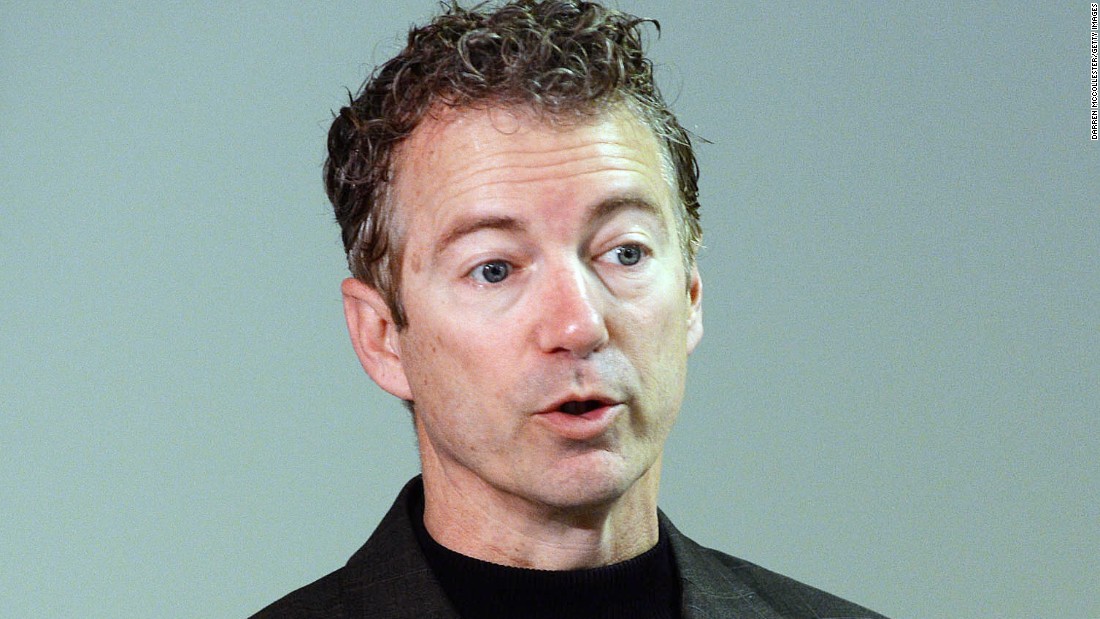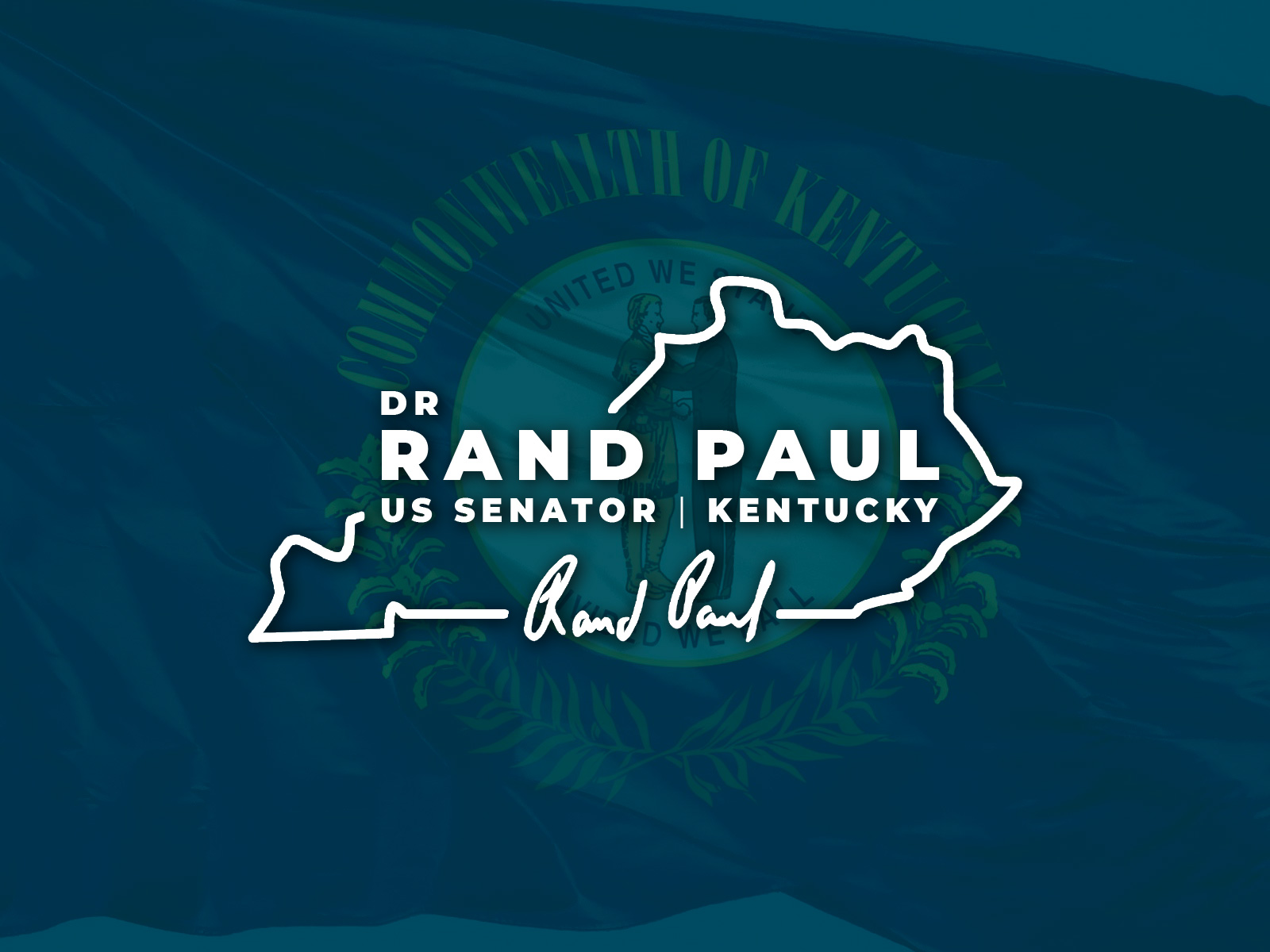When you think of Rand Paul, you’re thinking about a man who has become a cornerstone in modern American politics. He’s not just another politician; he’s a trailblazer who has carved his own path in the world of governance. As a senator from Kentucky and a former presidential candidate, Rand Paul has made waves with his libertarian ideals and steadfast commitment to individual freedoms. Whether you love him or loathe him, there’s no denying his impact on the political landscape.
Rand Paul is more than just a name; he’s a symbol of change within the Republican Party. At a time when politics often feels like a stale game of repeating the same old ideas, Paul injects fresh perspectives into the conversation. His approach? A mix of fiscal conservatism, civil liberties advocacy, and an unwavering belief in limited government. It’s this unique blend that sets him apart from the crowd.
But what exactly makes Rand Paul so fascinating? Is it his dedication to privacy rights in an era of mass surveillance? Or maybe it's his willingness to challenge the status quo, even when it means going against his own party? Stick around, because we’re diving deep into the life, career, and controversies surrounding one of America's most intriguing political figures. Let’s peel back the layers and uncover the man behind the headlines.
Read also:Securely Connect Remote Iot P2p Raspberry Pi Free Download Your Ultimate Guide
Biography: Who Is Rand Paul?
Before we dive into the nitty-gritty of Rand Paul's political career, let’s take a moment to get to know the man himself. Born on January 6, 1963, in Pittsburgh, Pennsylvania, Rand Paul grew up in a household steeped in political ideology. His father, Ron Paul, was a legendary figure in the libertarian movement, and it’s safe to say that Rand inherited his dad’s passion for limited government and individual liberty.
Here’s a quick snapshot of Rand Paul’s personal details:
| Full Name | Randal Howard Paul |
|---|---|
| Date of Birth | January 6, 1963 |
| Place of Birth | Pittsburgh, Pennsylvania |
| Spouse | Beth Chang |
| Children | Three daughters |
| Education | Duke University (B.A.), Duke University School of Medicine (M.D.) |
Rand Paul didn’t start his career in politics right out of the gate. After earning degrees from Duke University, including a medical degree, he worked as an ophthalmologist for over a decade. This background in medicine gives him a unique perspective on healthcare policy, which has been a recurring theme throughout his political tenure.
Early Life and Education
Growing up in a politically active family, Rand Paul was exposed to libertarian ideas at an early age. His father, Ron Paul, served multiple terms in Congress and became a leading voice for limited government and free-market principles. These early influences undoubtedly shaped Rand’s worldview.
After graduating from high school, Rand attended Duke University, where he earned both his undergraduate degree and medical degree. His decision to pursue a career in medicine speaks volumes about his dedication to helping people, albeit in a different way than his future political endeavors would entail.
Rand Paul’s Journey in Politics
Rand Paul’s entry into politics wasn’t your typical story. Unlike many politicians who climb the ranks through years of service in local government, Paul burst onto the scene in 2010 with a stunning victory in Kentucky’s Republican Senate primary. Running as a Tea Party favorite, he defeated the establishment-backed candidate and went on to win the general election, cementing his place in Washington.
Read also:Securely Connect Remote Iot P2p Ssh Raspberry Pi Free The Ultimate Guide
Since then, Rand Paul has become a fixture in the Senate, using his platform to advocate for issues like criminal justice reform, drug policy reform, and, of course, civil liberties. His tenure has been marked by both praise and criticism, but one thing’s for sure—he’s never afraid to speak his mind.
Key Issues Rand Paul Champions
- Privacy Rights: Rand Paul has been a vocal opponent of government overreach, particularly when it comes to surveillance programs like the NSA's bulk data collection.
- Healthcare Reform: With his medical background, Paul brings a unique perspective to the healthcare debate, advocating for patient-centered solutions.
- Criminal Justice Reform: He’s worked across the aisle to push for sentencing reform and reducing mandatory minimums, earning praise from both sides of the aisle.
These issues aren’t just talking points for Rand Paul—they’re deeply held beliefs that guide his actions in Congress. His ability to bridge divides and find common ground has earned him respect from colleagues on both sides of the aisle.
Controversies Surrounding Rand Paul
No public figure is without controversy, and Rand Paul is no exception. Over the years, he’s faced criticism for a variety of reasons, ranging from his foreign policy stances to alleged plagiarism in his writings. Let’s break down some of the biggest controversies surrounding this political maverick.
Foreign Policy Stance
One of the most contentious aspects of Rand Paul’s career has been his foreign policy views. As a staunch isolationist, Paul advocates for a more restrained U.S. foreign policy, arguing that America should focus on domestic issues rather than getting involved in overseas conflicts. While this stance resonates with many libertarian-minded voters, it’s been met with skepticism from hawkish members of his own party.
Paul’s opposition to military interventions in places like Libya and Syria has drawn fire from critics who accuse him of being naive about global threats. However, his supporters argue that his approach reflects a more sustainable and cost-effective foreign policy.
Rand Paul’s Run for President
In 2016, Rand Paul made a bid for the presidency, running as the libertarian candidate in a crowded Republican field. While he ultimately didn’t secure the nomination, his campaign highlighted many of the issues that have defined his career.
Paul’s presidential run was notable for its focus on civil liberties, privacy rights, and economic freedom. He also emphasized the need for a more peaceful foreign policy, a message that resonated with some voters but failed to gain traction in the broader electorate.
Lessons Learned from the Campaign
Although Rand Paul didn’t win the presidency, his campaign provided valuable lessons for both himself and the Republican Party. It underscored the importance of messaging and coalition-building, two areas where Paul struggled to connect with mainstream voters.
Despite the setback, Paul remains a key figure in the GOP, using his Senate seat to continue pushing for the reforms he believes in.
Rand Paul’s Impact on Modern Conservatism
Rand Paul has had a profound influence on modern conservatism, injecting libertarian ideals into a party that has traditionally been more focused on social issues and fiscal responsibility. His emphasis on individual liberty and limited government has inspired a new generation of conservative activists.
Paul’s impact extends beyond just policy discussions. He’s also played a role in reshaping the Republican Party’s approach to coalition-building, encouraging the inclusion of diverse voices and perspectives.
Legacy and Future Prospects
As Rand Paul continues his career in the Senate, many are wondering what the future holds for this political maverick. Will he run for office again? Or will he focus on solidifying his legacy as a champion of liberty and reform?
Whatever path he chooses, one thing is certain: Rand Paul will remain a powerful voice in American politics for years to come.
Public Perception of Rand Paul
Public opinion on Rand Paul is as varied as the man himself. Supporters praise him for his principled stance on issues like privacy rights and limited government, while critics accuse him of being out of touch with mainstream America.
Despite the mixed reviews, Paul’s ability to generate passionate debate is a testament to his influence. Whether you agree with him or not, there’s no denying that he’s a force to be reckoned with in the world of politics.
What the Numbers Say
According to recent polls, Rand Paul enjoys a solid base of support among libertarian-leaning voters, but his appeal to the broader electorate remains limited. This suggests that while his message resonates with certain segments of the population, it may not be enough to win over the mainstream.
Conclusion: Why Rand Paul Matters
Rand Paul’s career serves as a reminder of the power of ideas in shaping the political landscape. From his early days as a Tea Party favorite to his current role as a Senate stalwart, Paul has consistently challenged the status quo and pushed for meaningful reforms.
As we look to the future, it’s clear that Rand Paul will continue to play a pivotal role in the ongoing debate over the size and scope of government. His legacy will be defined not just by the policies he champions, but by the ideals he represents.
So, what’s next for Rand Paul? Only time will tell. But one thing’s for sure—he’s not done making waves in the world of politics. So stay tuned, because the best may still be yet to come.
Don’t forget to share your thoughts in the comments below or explore more articles on our site to stay informed about the issues that matter most to you.
Table of Contents
- Biography: Who Is Rand Paul?
- Early Life and Education
- Rand Paul’s Journey in Politics
- Key Issues Rand Paul Champions
- Controversies Surrounding Rand Paul
- Foreign Policy Stance
- Rand Paul’s Run for President
- Lessons Learned from the Campaign
- Rand Paul’s Impact on Modern Conservatism
- Legacy and Future Prospects
- Public Perception of Rand Paul
- What the Numbers Say
- Conclusion: Why Rand Paul Matters


